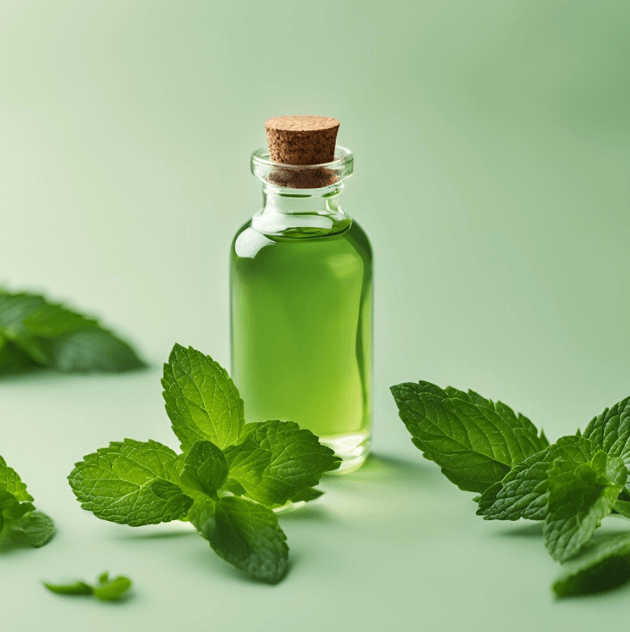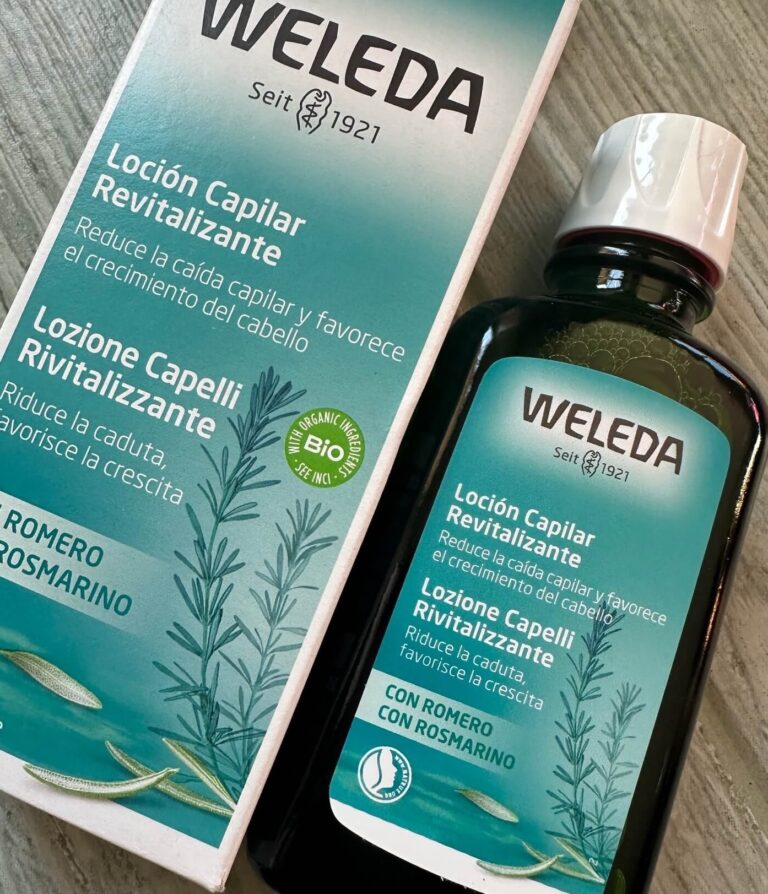8 Best Honey Garlic Remedy Recipes
If you’ve ever had a cold or a sore throat, you’ve probably heard someone suggest a combination of honey and garlic. I’ll admit, I was a little skeptical the first time I heard about it. But once I tried making garlic honey for the first time, I was hooked. It’s one of those age-old remedies that really works—and the best part? It’s all-natural and super easy to make at home. Plus, the garlic honey benefits are hard to ignore.
I’ve collected eight of my favorite garlic honey remedy recipes. These are the ones I swear by when I’m feeling under the weather or just want a little immune boost. The best part is, you can tweak these recipes to suit your tastes or whatever ingredients you have on hand. This post shows you the best 8 honey garlic remedy recipes to try.
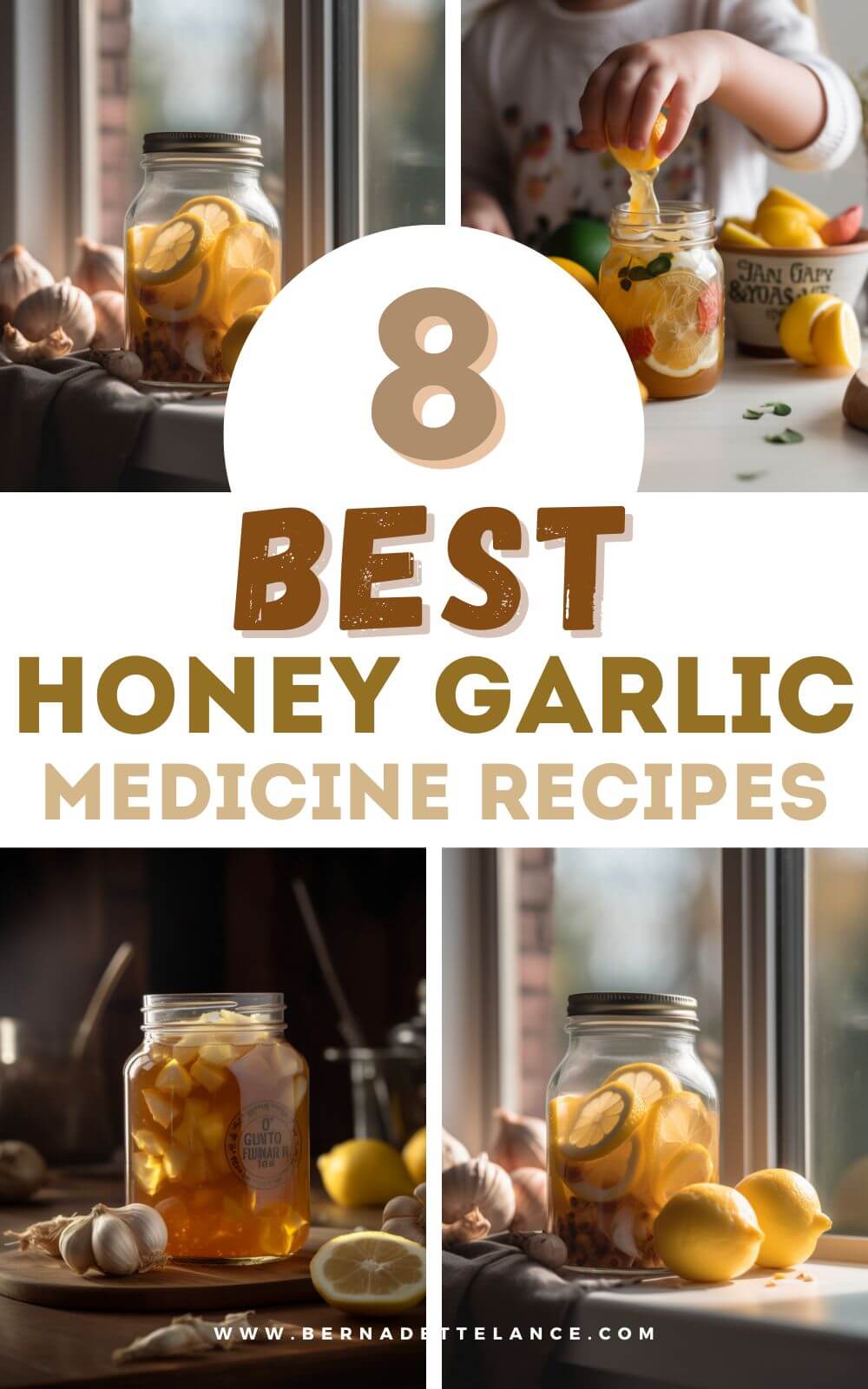
This post contains affiliate links. I may earn a small commission, at no extra cost to you.
1. Classic Garlic Honey
This is the most basic and classic garlic honey remedy recipe that I use when I feel a cold coming on. It’s easy to make and stores well in the fridge for a few weeks.
Ingredients:
- 5-6 garlic cloves
- 1 cup raw honey
Instructions:
- Peel and lightly crush the garlic cloves.
- Place them in a small jar and cover with raw honey.
- Let it sit for a few days, giving it a shake once in a while.
This mixture is amazing for sore throats and colds. Take a spoonful straight from the jar when you feel a cold coming on.
Garlic honey remedy for cold relief really does work wonders, and the garlic honey benefits make this a go-to remedy for the whole family.
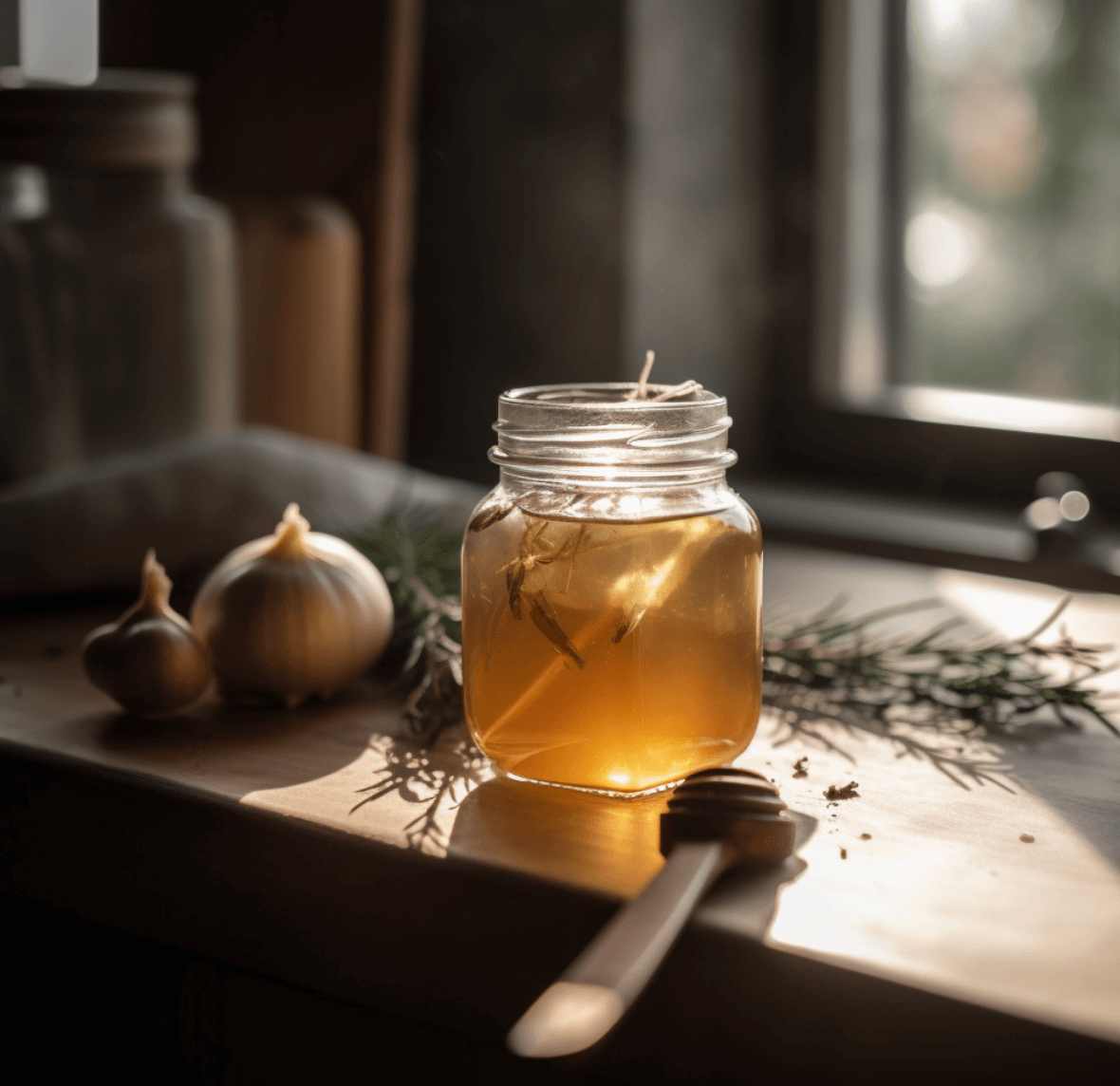
2. Garlic Honey Lemon
When I want a little extra kick to help with a stuffy nose or cough, I add lemon to my garlic honey mix. The vitamin C in the lemon helps boost immunity, while the honey soothes the throat.
Ingredients:
- 5 garlic cloves
- 1 lemon, sliced
- 1 cup raw honey
Instructions:
- Slice the lemon and add it to a jar with the garlic.
- Cover with honey and let sit for a few days.
- Take a spoonful as needed, or mix it into warm water for a soothing drink.
The combination of garlic, honey, and lemon is powerful, and the taste is actually pretty pleasant!
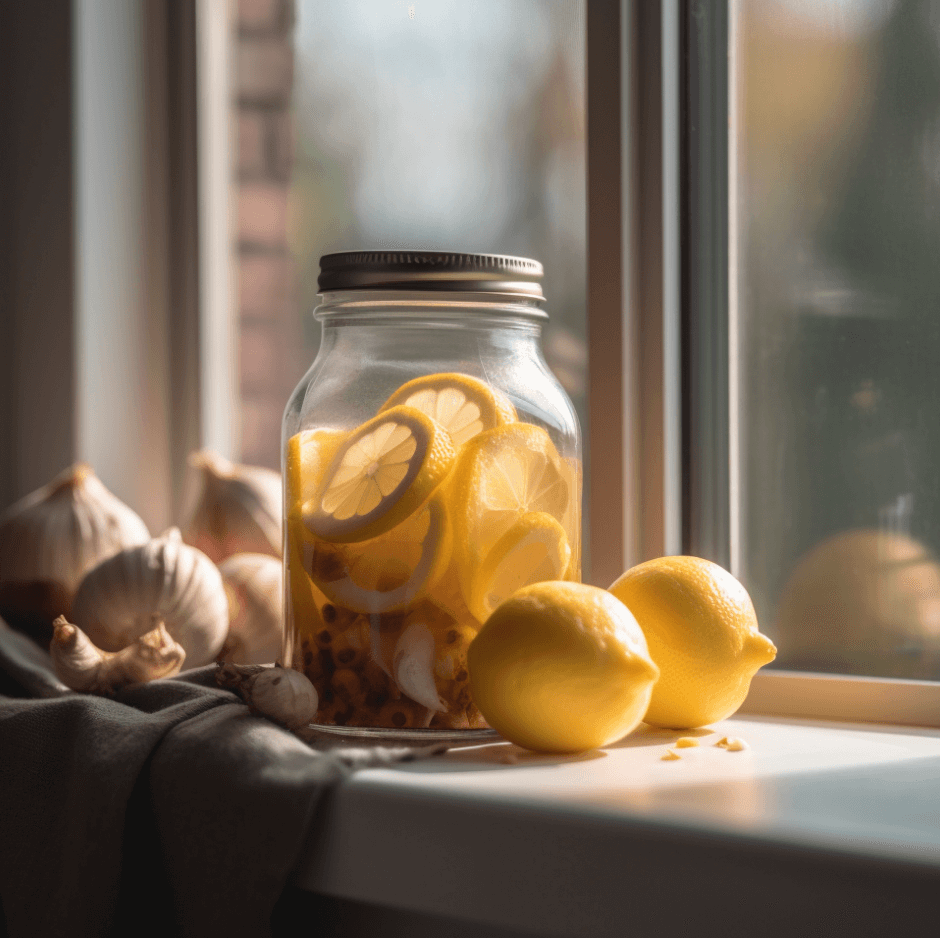
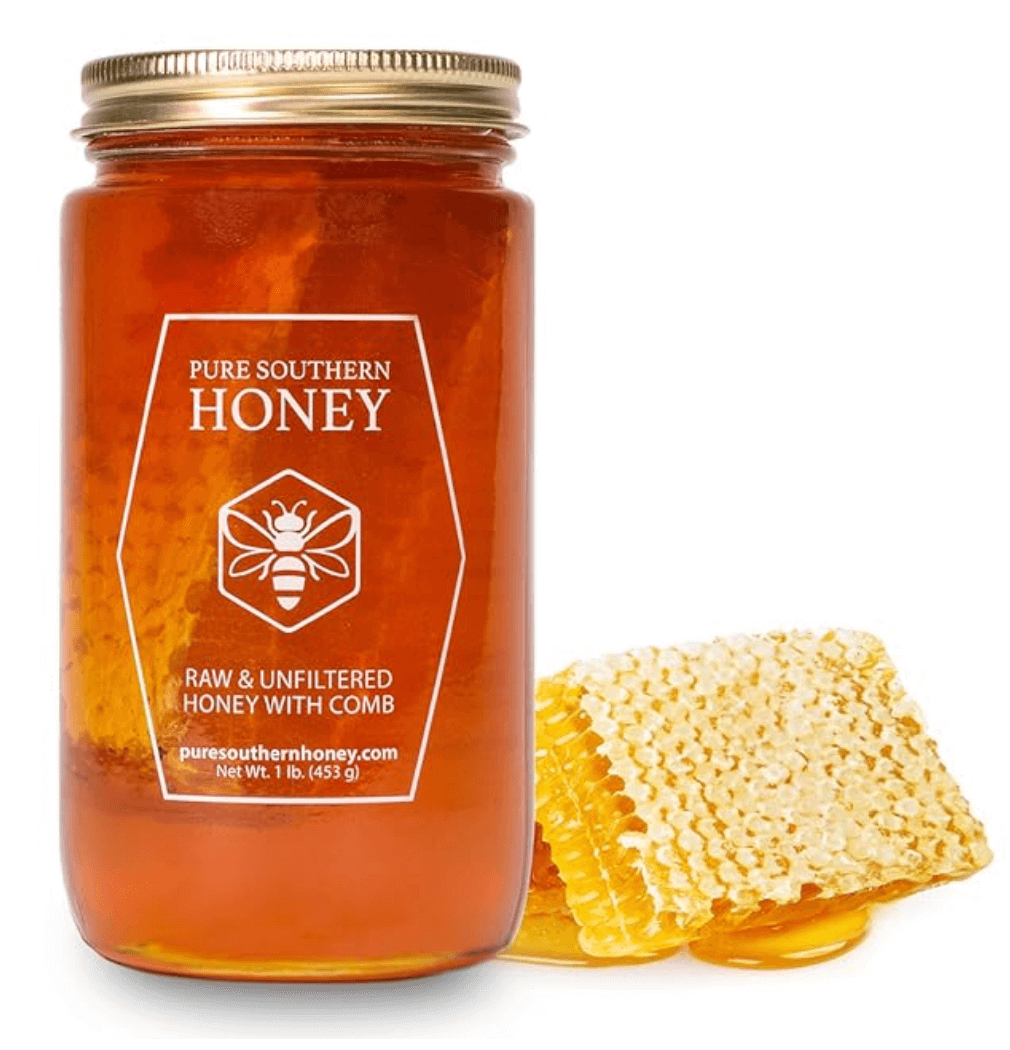

3. Garlic Ginger Honey
This is another one I love for colds and coughs, especially if congestion is an issue. Ginger adds some extra warmth and helps clear up those clogged sinuses.
Ingredients:
- 4 garlic cloves
- A 2-inch piece of fresh ginger, peeled and sliced
- 1 cup raw honey
Instructions:
- Slice the garlic and ginger, and place them in a jar.
- Cover with honey and let it sit for a few days.
I like to take this straight from the jar or mix it into hot water for a soothing tea. The garlic honey ginger combo is one of my favorites because it packs a powerful punch when I’m feeling congested.
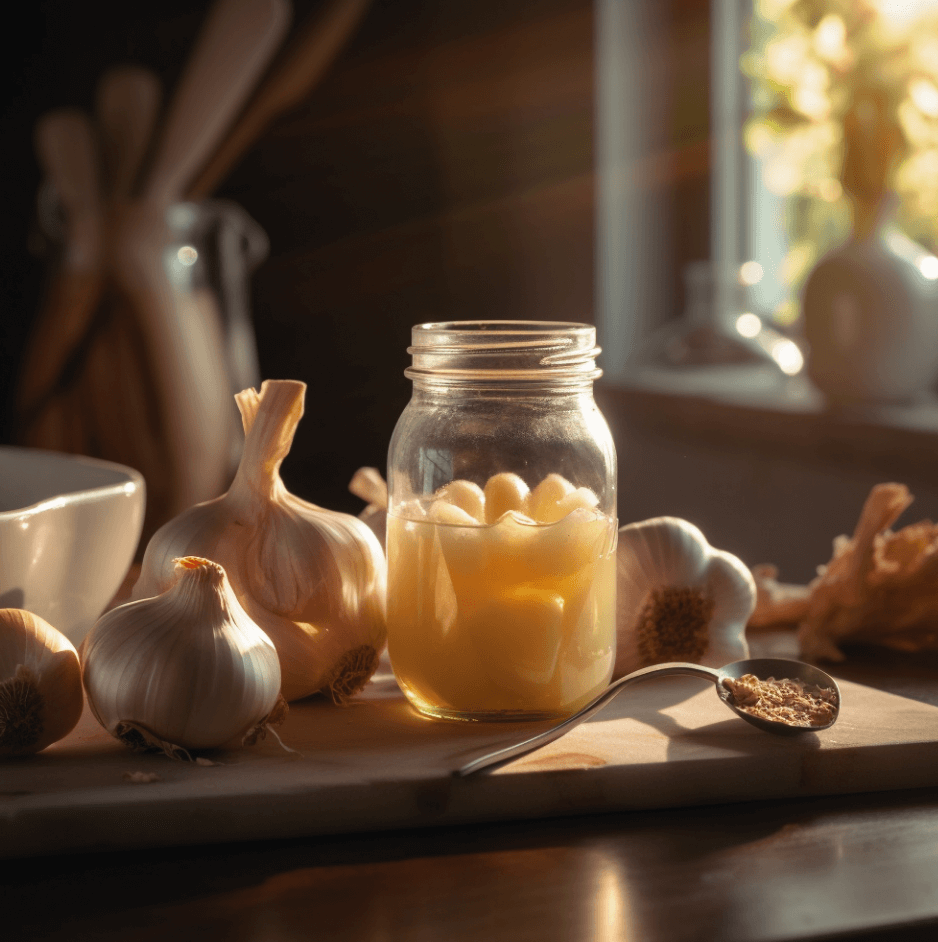
4. Garlic Honey for Kids
This is a slightly milder version that’s more kid-friendly, without the strong raw garlic flavor. You can adjust the garlic based on how well your child tolerates it.
Ingredients:
- 1 garlic clove
- 1 cup raw honey
- Two few slices of lemon (optional)
Instructions:
- Lightly crush the garlic cloves and add them to a jar with the honey.
- Let it sit for 6 hours before giving it to kids.
- You can add a few lemon slices to make it even more palatable.
I’ve used this version on my own kids when they had colds, and it really helped soothe their throats and ease their coughs. Plus, they actually don’t mind the taste!

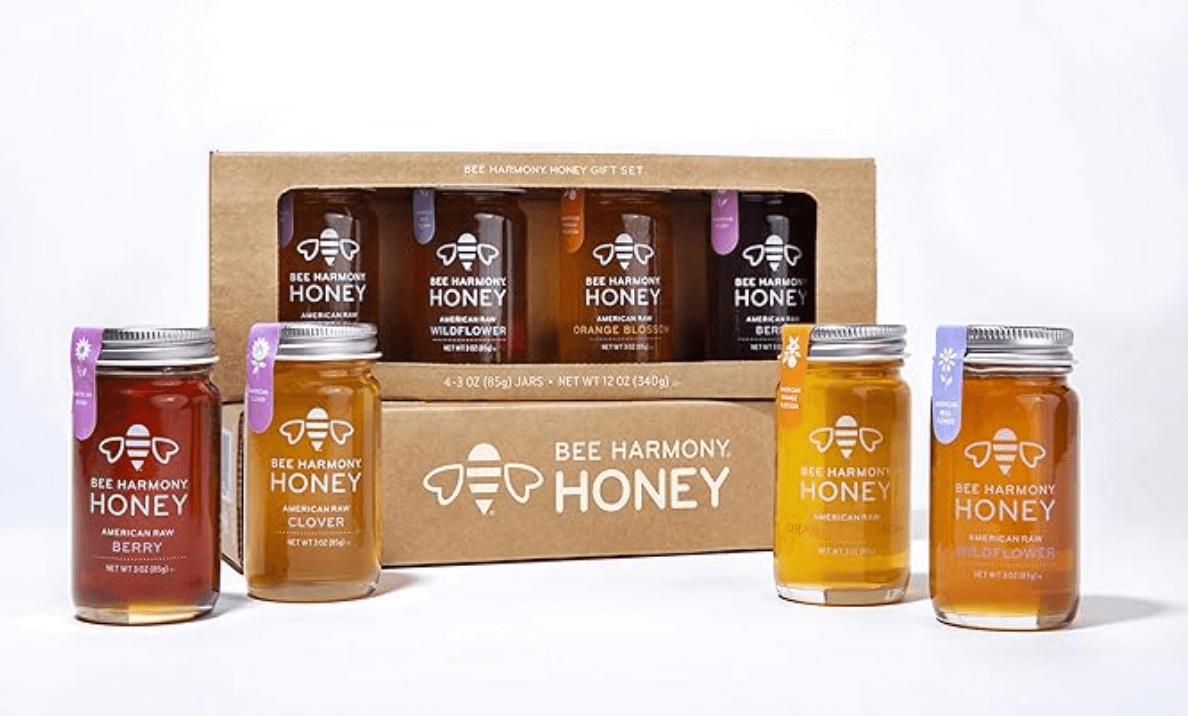

5. Garlic Honey for Gifting
This makes a thoughtful, practical gift, especially around cold and flu season. Package it in a cute jar with a little handwritten label—it’s a unique and useful garlic honey gift.
Ingredients:
- 5 garlic cloves
- 1 cup raw honey
- Optional: rosemary, thyme, or lemon slices for extra flavor
Instructions:
- Place the garlic (and any optional herbs or lemon) into a decorative jar.
- Cover with honey and tie a ribbon around the jar.
I’ve gifted this to friends and family, and they’ve always appreciated having a natural remedy on hand!
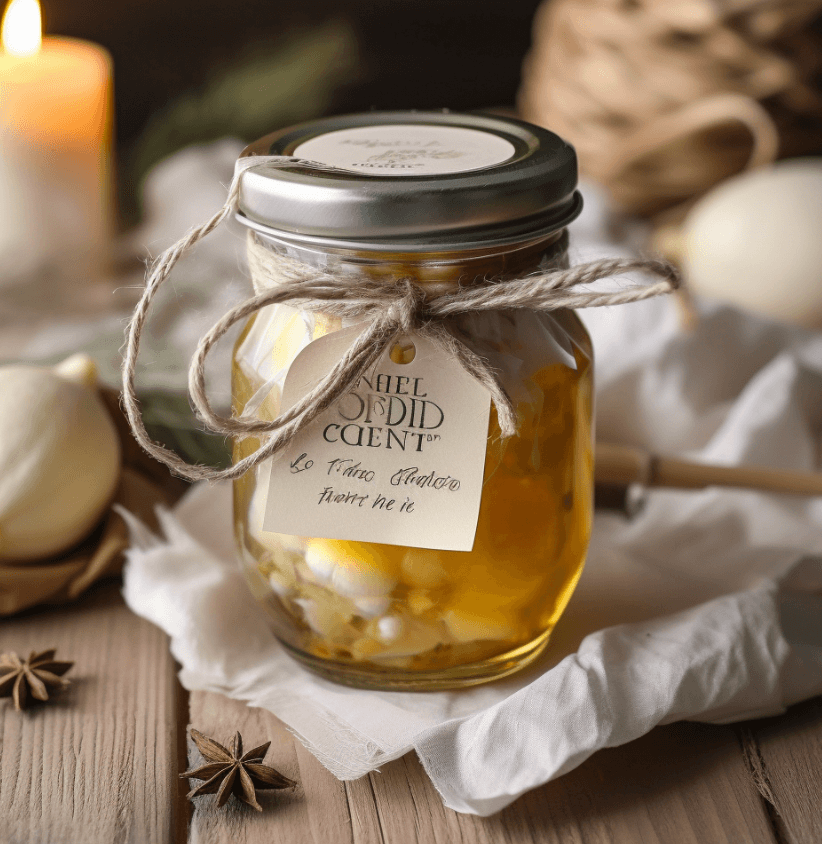
6. Garlic Honey for Daily Use
This is my go-to when I’m not sick but want to keep my immune system strong. The garlic honey uses are endless—whether it’s to ward off colds or to help with digestion.
Ingredients:
- 4 garlic cloves
- 1 cup honey
- 1 tbsp apple cider vinegar (optional)
Instructions:
- Combine garlic and honey in a jar.
- If you want to add some digestive benefits, include a splash of apple cider vinegar.
Take a spoonful daily or add it to tea to get those daily garlic honey benefits.
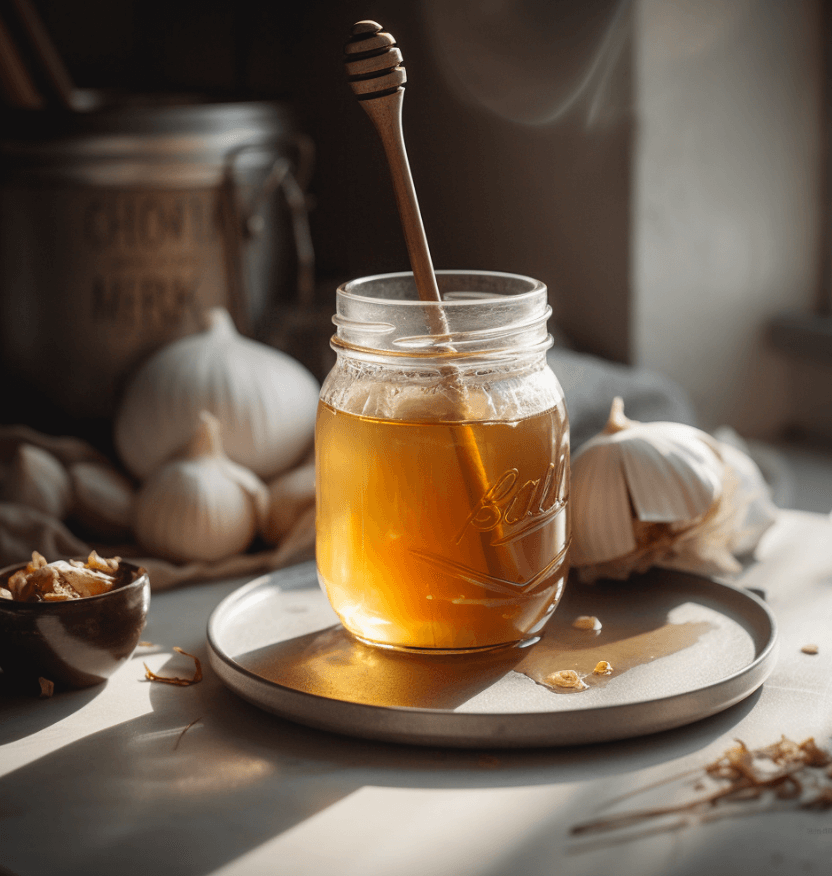
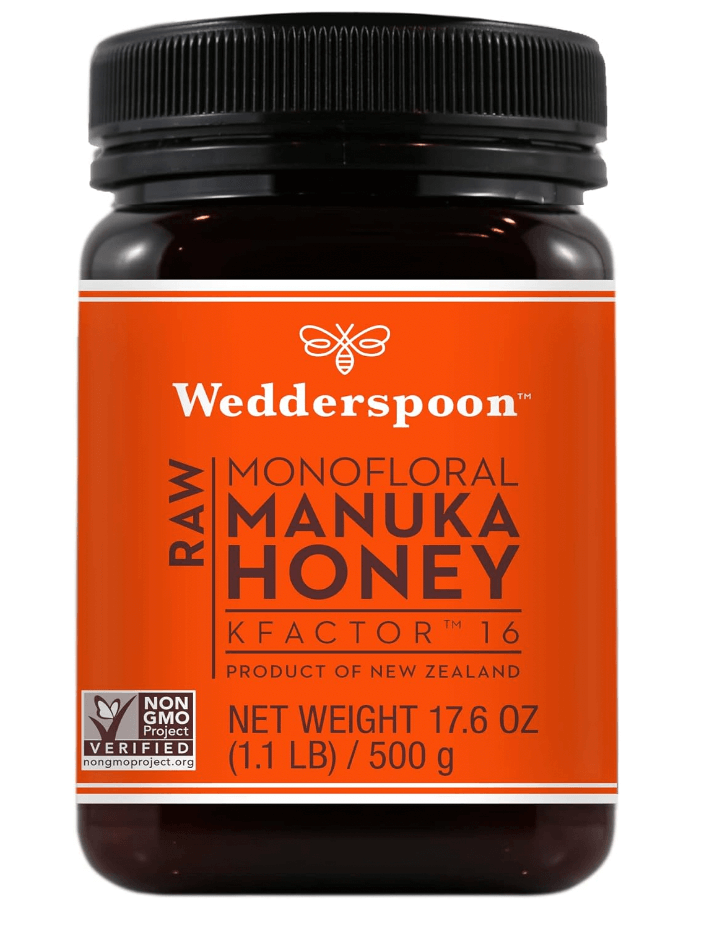

Pro-tip: Adding Manuka Honey
What is Manuka Honey?
Manuka honey is a monofloral honey, meaning it is primarily derived from the nectar of a single plant species—the Manuka bush. The Manuka plant, native to New Zealand and southeastern Australia, is known for its hardy, scrub-like appearance and white or pink blossoms. Bees collect nectar from these flowers to produce a dark, thick honey with a rich, earthy flavor and a slightly bitter aftertaste.
What Makes Manuka Honey Different from Regular Honey?
Manuka honey stands out from other types of honey due to its unique chemical composition and remarkable medicinal properties. Here’s what makes it special:
1. High Levels of Methylglyoxal (MGO)
- MGO is a naturally occurring compound found in Manuka honey that gives it its potent antibacterial properties.
- While regular honey contains some MGO, the levels in Manuka honey are significantly higher, making it particularly effective for wound healing, infection prevention, and overall immune support.
2. Unique Manuka Factor (UMF)
- Manuka honey is graded using the UMF scale, which measures its antibacterial potency. The UMF rating considers the concentration of MGO, dihydroxyacetone (DHA), and leptosperin (a marker compound unique to Manuka nectar).
- A higher UMF rating (10+ or above) indicates greater potency and medicinal value.
3. Antimicrobial Properties
- Manuka honey’s antibacterial and antifungal properties are more robust and stable compared to regular honey.
- Unlike regular honey, Manuka honey retains its antibacterial properties even when exposed to heat, light, or dilution.
4. Anti-Inflammatory and Healing Properties
- Manuka honey has been shown to accelerate wound healing, reduce inflammation, and promote tissue regeneration, making it a popular choice in natural medicine.
5. Rich Nutritional Profile
- Manuka honey contains higher levels of vitamins, minerals, amino acids, and antioxidants than most other honeys.
6. Flavor and Texture
- Manuka honey has a unique taste—richer and less sweet compared to traditional honey, with earthy and slightly medicinal undertones.
- Its texture is typically thicker, making it ideal for use as a spread or topical application.
Health Benefits of Manuka Honey
1. Wound Healing
Manuka honey is widely used in medical settings to treat burns, cuts, and ulcers. Its antibacterial properties help prevent infections, while its anti-inflammatory effects speed up healing.
2. Immune Support
Consuming Manuka honey can help boost the immune system, thanks to its high antioxidant and antimicrobial activity.
3. Sore Throat Relief
A spoonful of Manuka honey can soothe a sore throat and reduce inflammation, thanks to its natural ability to kill bacteria and coat the throat.
4. Digestive Health
Manuka honey can aid digestion by promoting gut health, reducing symptoms of acid reflux, and helping with conditions like irritable bowel syndrome (IBS).
5. Skin Care
When applied topically, Manuka honey can help treat acne, eczema, and other skin conditions by reducing bacteria and inflammation while hydrating the skin.
6. Oral Health
Manuka honey helps combat gum disease and bad breath by reducing harmful bacteria in the mouth without harming beneficial oral microbes.
How to Choose High-Quality Manuka Honey
When buying Manuka honey, it’s essential to check for authenticity and potency. Look for the following:
- UMF Certification: Ensure the honey has a UMF rating (e.g., UMF 10+, UMF 15+, UMF 20+), which guarantees it meets the standards for genuine Manuka honey.
- MGO Content: Some brands display the MGO levels instead of UMF. Higher MGO numbers indicate greater antibacterial strength.
- Country of Origin: Authentic Manuka honey comes from New Zealand or Australia. Check the label for origin details.
- Price: Due to its rarity and medicinal properties, Manuka honey is more expensive than regular honey. Be cautious of unusually low-priced products.
7. Garlic Honey for Sore Throats
When I have a sore throat, this recipe always does the trick. Adding a pinch of cayenne pepper really helps soothe the pain and inflammation.
Ingredients:
- 4 garlic cloves
- 1 cup raw honey
- Pinch of cayenne pepper
Instructions:
- Slice garlic and mix with honey in a jar.
- Add a pinch of cayenne for extra relief.
- Let it sit for a few days before using.
This mixture can be taken straight, or you can mix it into warm tea. It’s so soothing when that scratchy throat just won’t quit.
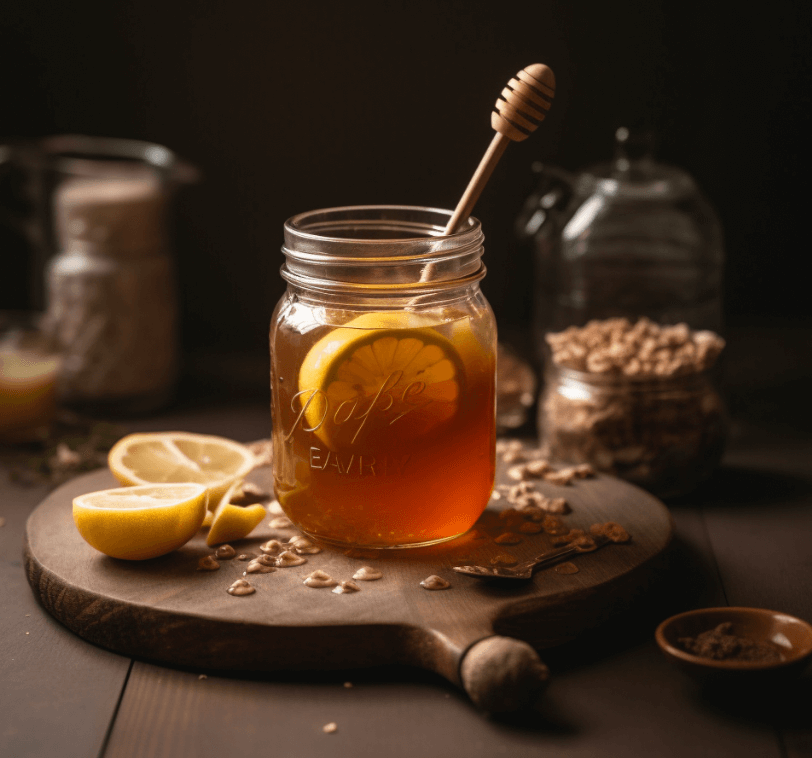
8. Garlic Honey for Coughs
This one’s a favorite when a cough is lingering. It’s also great for chest congestion. The garlic honey benefits paired with a bit of lemon make this a powerful remedy.
Ingredients:
- 4 garlic cloves
- 1 lemon, sliced
- 1 cup raw honey
- 1 tbsp apple cider vinegar (optional)
Instructions:
- Combine all ingredients in a jar and let it sit for a few days.
- Take a spoonful as needed for cough relief.
I swear by this one, especially in the winter when everyone around me seems to be coughing.
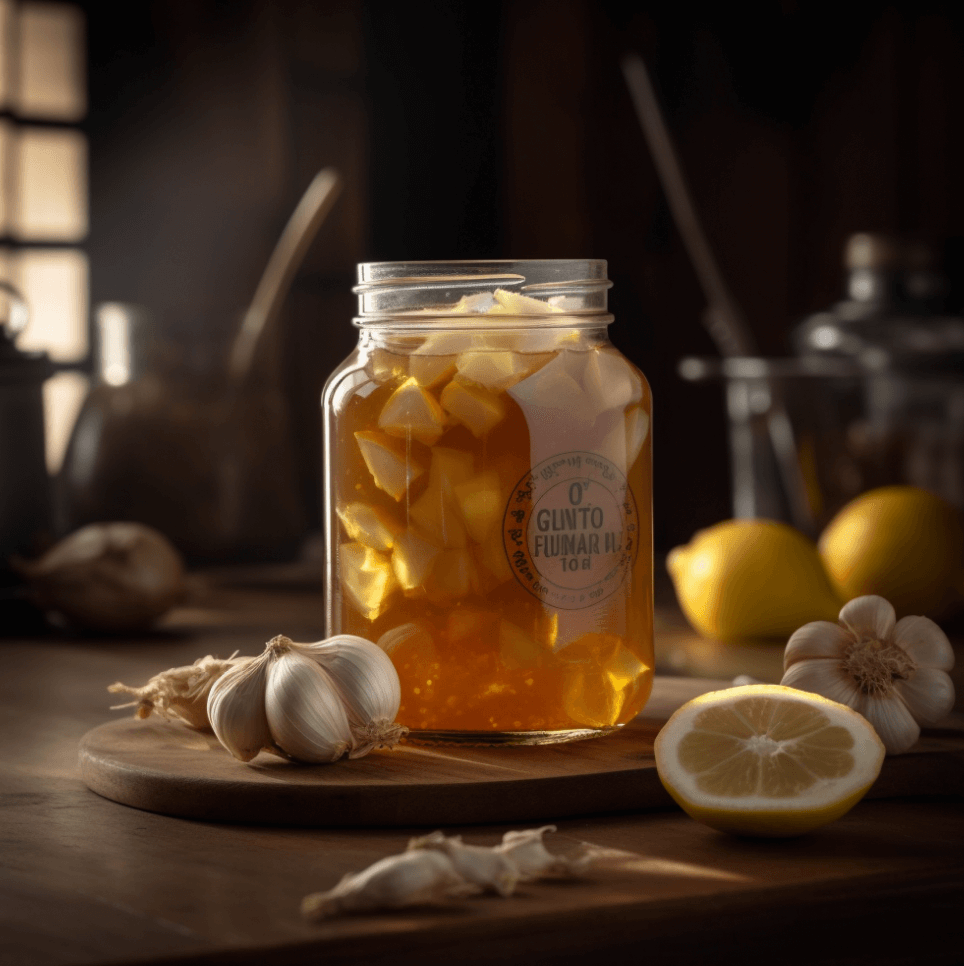
In Conclusion, there are so many ways to make garlic honey remedies, and the benefits are truly amazing. Whether you’re looking for something for yourself or you want to make a thoughtful garlic honey remedies gift, these recipes are easy to put together and so useful to have on hand. From colds to sore throats, the natural power of garlic and honey is a simple remedy that I always go back to.
While garlic honey remedies can offer many benefits, they might not be suitable for everyone. Here are some cases where caution should be exercised:
1. Infants (under 1 year old)
- Honey should never be given to infants under one year of age due to the risk of botulism, a rare but serious form of food poisoning. Honey can contain spores of the bacteria Clostridium botulinum, which can grow in a baby’s immature digestive system.
2. People on Blood-Thinning Medications
- Garlic acts as a natural blood thinner, which can enhance the effects of prescribed blood-thinning medications such as warfarin (Coumadin) or aspirin. This can increase the risk of bleeding or bruising. If you’re on any blood-thinning medications, it’s best to consult your doctor before consuming garlic remedies.
3. People with Allergies to Garlic or Honey
- Garlic allergies are rare but can cause symptoms such as skin rashes, digestive issues, or even more severe reactions. If you are allergic to garlic, avoid garlic-based remedies.
- Honey allergies are uncommon but possible, especially in individuals who are allergic to bee pollen. Those with honey allergies should avoid honey in any form.
4. People with Gastrointestinal Conditions
- Garlic can be irritating to the stomach, especially in raw form. Individuals with conditions such as acid reflux, ulcers, or irritable bowel syndrome (IBS) may experience increased discomfort after consuming raw garlic. It can lead to bloating, gas, or stomach pain in sensitive individuals.
5. Pregnant or Breastfeeding Women
- In moderate amounts, garlic and honey are generally safe for pregnant or breastfeeding women. However, because garlic may act as a blood thinner, it’s advisable to consult a healthcare professional before using concentrated garlic remedies, particularly in the weeks leading up to delivery.
6. People Preparing for Surgery
- As mentioned, garlic can have a blood-thinning effect, which may increase the risk of excessive bleeding during or after surgery. It’s usually recommended to stop consuming garlic in large quantities at least two weeks before any scheduled surgery.
7. Individuals with Diabetes
- Honey is high in natural sugars and may affect blood sugar levels. Diabetic individuals should monitor their blood sugar levels carefully if using honey-based remedies and consult their doctor to see if these remedies are appropriate.
8. Those with Low Blood Pressure
- Garlic is known to lower blood pressure, which can be beneficial for some, but if you already have low blood pressure or are taking medication to lower your blood pressure, consuming large amounts of garlic may cause your blood pressure to drop too low.
If you fall into any of these categories or have specific medical concerns, it’s always best to talk to a healthcare professional before trying garlic honey remedies to ensure they are safe for you.
